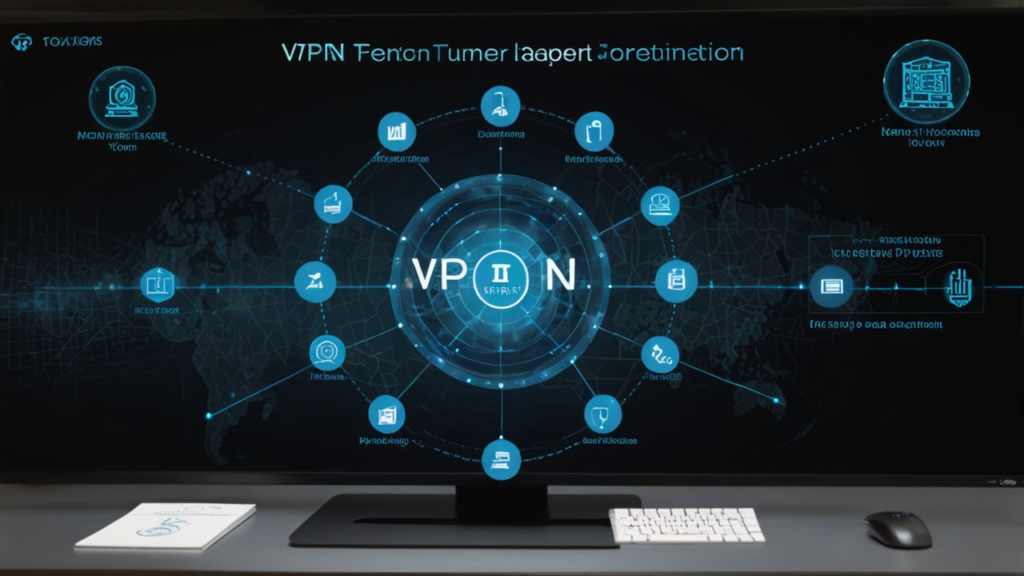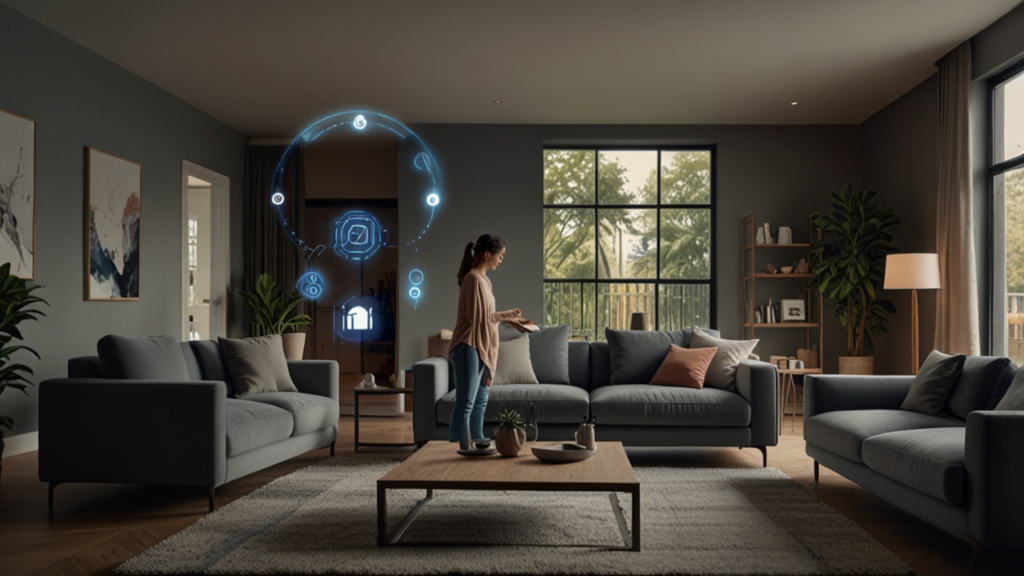VPN setup: Why Are 5 Security Elements Essential?
When you think about online privacy and security, a properly configured VPN setup becomes a vital component in protecting your data. This article explores the core principles that make VPNs secure and reliable, while examining the evolution and real-world applications of this technology. We will help you understand how encryption, masking, and other advanced functionalities contribute to the overall reliability of a VPN setup.
The journey from early networking innovations to today’s sophisticated VPN solutions is remarkable. We dive into the history, technical methodologies, and recent trends that continue to shape VPN technology. Discover insights that can help elevate your understanding of secure digital connections.
Whether you’re a tech enthusiast or just someone who wants to protect personal data, this detailed overview is for you. Read on to explore all aspects of VPN setup and be sure to share your thoughts and experiences in the comments.
Table of Contents
Introduction to VPN setup Automation Technologies
Understanding the Fundamentals
A VPN setup provides a secure tunnel for data, ensuring that your online activity is shielded from prying eyes. The underlying technology incorporates a combination of robust encryption, secure protocols, and specialized tunneling methods.
Historically, VPNs were reserved for businesses, but now anyone seeking privacy can leverage these solutions. In technical terms, a secure connection involves layers such as IP masking and kill switches.
For example, encryption techniques like AES-256 are employed to create virtually impenetrable data protection. This method has evolved over time, starting with simpler protocols and advancing into the multi-layered systems we use today.
The evolution has been driven by both user demand and technological advances. Have you ever wondered how your data is kept safe as you browse?
Key Components and Their Purpose
At a high level, a VPN setup is built upon five essential elements: end-to-end encryption, IP address masking, no-log policies, kill switch functionality, and secure protocol implementation. Each of these elements plays a vital role in ensuring your digital privacy is upheld.
For instance, end-to-end encryption encrypts all your data from the moment it leaves your device until it reaches the destination. This protects against various threats including interception by third parties.
Furthermore, the kill switch is designed to immediately disconnect your connection if the VPN drops unexpectedly, ensuring no unprotected data escapes. This structured design is critical for both personal and professional use.
What component of your digital security do you value the most?
Evolution and History of VPN setup Innovative Solutions
Early Milestones and Developments
The history of VPN setup began with the advancements in ARPANET and the introduction of TCP/IP protocols. In the 1960s and 1980s, foundational work set the stage for secure communication.
One major breakthrough came in 1993 with the development of the Software IP Encryption Protocol (SWIPE) by AT&T Bell Laboratories. This innovation demonstrated how encapsulating and encrypting IPv4 packets could provide secure data transmission.
Although SWIPE was initially experimental, it laid the groundwork for future protocols like IPsec. The subsequent standardization of these protocols transformed VPN setups into reliable security tools.
Research from sources like Palo Alto Networks indicates that these early innovations have had lasting impacts. What past innovation do you think had the biggest influence on current security practices?
Corporate Adoption and Standardization
Following early developments, VPN setups were gradually adopted by corporations for secure remote access. Internet Protocol Security (IPsec) emerged as one of the first standardized cryptographic suites. This protocol authenticated and encrypted data packets across networks.
Microsoft and Cisco played pivotal roles by introducing PPTP and L2TP respectively. These protocols simplified secure tunneling and laid the infrastructure for widespread VPN use in businesses.
Statistics show that as early as 2020, nearly 70% of companies expanded their VPN usage, with 29% adopting it for the first time, reflecting the critical role of VPN setup in modern operations (NordVPN history).
These early secure connections have evolved into sophisticated solutions that are essential today. Have you experienced the seamless connectivity that modern VPNs enable?
How network encryption Enhances VPN setup Technology Transformation
Encryption Algorithms and Techniques
Encryption is a cornerstone of any secure connection. Advanced methods like AES-256 provide robust data protection that remains unbreakable with current technology. The algorithm is optimized by employing a 256-bit key that is nearly impossible to crack.
In addition, alternative algorithms such as ChaCha20 can enhance security for devices lacking dedicated hardware support. These encryption techniques are vital as they maintain data integrity during transmission.
For instance, many VPN setups use a combination of RSA and ECC for key exchange and certificate-based authentication. This makes it extremely difficult for unauthorized entities to gain access to sensitive information.
Recent insights from ExpressVPN History further validate these advancements in encryption. Can you imagine the risks avoided through such robust encryption protocols?
Benefits and Impact on User Privacy
Strong encryption not only protects data but also reinforces user privacy at every stage of communication. By encrypting data at the source and decrypting only at the destination, the risk of interception is drastically reduced.
A core advantage of using a proper VPN setup is that it hides your sensitive information from hackers, ISPs, and other adversaries. This means a safer online experience for both personal and professional tasks.
Moreover, reliable encryption supports compliance with privacy regulations across different regions. For more details on regulatory requirements, consider reading a recent update on Technadu.
How much would enhanced encryption ease your online security concerns?
anonymous browsing Systems and Their Applications Digital Revolution
Principles and Mechanisms of Anonymous Browsing
Anonymous browsing systems are designed to mask the user’s identity and location. They employ techniques such as IP address masking to conceal where users are connecting from.
These systems work by routing traffic through various servers, thus obscuring the original IP address. This process is central to maintaining user anonymity online.
Furthermore, advanced tunneling protocols ensure that the source of data remains hidden, giving users a layer of privacy that is crucial in today’s data-driven world. A detailed study by Surfshark History emphasizes these mechanisms.
By ensuring anonymity, these systems help prevent tracking by governments, hackers, or advertisers. What steps would you take to further protect your online identity?
Practical Applications in Daily Life
For everyday users, anonymous browsing has practical value beyond mere privacy. It allows for safe access to geo-restricted content and secures communication on public Wi-Fi.
The technology is ideal for users who desire a blend of privacy and accessibility without sacrificing speed. In sensitive regions, anonymous browsing can contribute to safety by thwarting targeted surveillance.
Many governments and enterprises also use these systems to secure their communications. An example provided by Datamation illustrates widespread use in corporate environments.
Have you ever experienced limitations online that anonymous browsing could mitigate?
Real-World Case Studies of VPN setup Digital Transformation
Case Study: Softech’s Remote Data Management
Softech, specializing in environmental monitoring systems, faced the challenge of slow, insecure remote modem connections. Implementing a VPN setup using OpenVPN Access Server allowed them to secure remote connections efficiently.
This case study shows how a well-configured VPN helped eliminate disruptions during critical data management operations. Softech saw improved speed and reliability, making it easier for employees to access real-time data securely.
Detailed statistics report that such interventions have led to smoother operations and enhanced data protection. Industry reports confirm that many businesses have observed similar outcomes (Re-Thinking the Future).
Have you encountered connectivity issues that hinder productivity?
Case Study: Kooapps’ Intellectual Property Security
Kooapps, a mobile game developer, implemented a VPN setup to secure their sensitive intellectual property during the transition to remote work amid the COVID-19 pandemic. Their solution included a zero-trust model with two-factor authentication and robust network encryption.
This secure setup enabled employees to access resources in minutes regardless of location or device. The system’s effectiveness is shown by the rapid and secure onboarding of remote workers.
Moreover, this case study demonstrates how modern VPN solutions can mitigate risks associated with intellectual property theft. As reported by various industry sources, including success stories on StarterStory, VPN setups have significant commercial benefits.
Does this case study encourage you to reconsider your organization’s security protocols?
Comprehensive Comparison of Case Studies
| Example | Challenge | Solution | Impact |
|---|---|---|---|
| Softech | Slow modem connections | OpenVPN Access Server | Enhanced speed & reliability |
| Kooapps | Protection of sensitive IP | Zero-Trust VPN solution | Rapid secure remote access |
| Symlex VPN | Market trust and adoption | Robust service with global engagement | 6M subscriptions, 300K+ paid users |
| Corporate IT | Data breach risks | IPsec with strong encryption | Improved network security |
| Mobile Users | Insecure connections | IKEv2/IPsec protocols | Seamless mobile connectivity |
IP masking in Modern VPN setup Solutions Digital Revolution
Mechanics of IP Masking Technology
IP masking is a technique used to conceal the true IP address of the user. In a secure VPN setup, this is achieved by routing the data through intermediary servers that assign a new IP address.
This ensures that the actual location and identity remain hidden from websites and malicious attackers. Technically, this process involves multiple layers of obfuscation and secure tunneling.
The integration of IP masking has advanced significantly over the years. For instance, modern solutions utilize sophisticated algorithms to ensure that the masking cannot be easily reversed.
Such technical details are generally accepted as key components of a strong security strategy (NordLayer VPN basics). How do you feel this added layer of security affects your online anonymity?
Advantages for Businesses and Consumers
For both enterprises and individual users, IP masking plays a vital role in protecting privacy. By concealing the originating IP address, businesses can reduce the risk of targeted cyberattacks.
Consumers benefit by being able to browse anonymously and access content that might otherwise be restricted by geographic boundaries. This technological feature also minimizes data tracking by third parties.
Real-world applications include improved secure connections and enhanced protection during transactions. The overall benefit is a higher degree of confidentiality and reduced exposure to digital threats.
Can you see yourself utilizing this technology for an extra layer of online privacy?
Future Trends: secure connection and Beyond Digital Transformation
Emerging Technologies and Protocols
The future of VPN setup is geared toward further integration with emerging technologies such as zero-trust architectures and decentralized systems. Advanced protocols like WireGuard are continuously refined to deliver faster speeds while ensuring top-notch security.
Experts predict that future iterations will reduce latency even further and seamlessly integrate with evolving mobile networks. Such developments will likely offer even stronger protection against evolving cyber threats.
Furthermore, there is an increasing trend to incorporate artificial intelligence to dynamically detect and respond to potential security breaches.
Generally accepted industry reports suggest these advancements will soon revolutionize secure connections. What emerging technology would you most like to see in the next generation of secure systems?
Sustainability and Regulatory Impacts
As VPN setup technology evolves, so too does the regulatory landscape. Governments worldwide are revisiting policies surrounding data privacy and encryption. A balance must be achieved between ensuring secure connections and complying with legal frameworks.
This ongoing evolution will likely see collaborations between tech companies and regulatory bodies to shape the future of internet security. Sustainability in this arena also means creating solutions that can adapt to changing geopolitical climates.
Studies indicate that regulatory pressures could also drive innovation, pushing providers to develop even more sophisticated security measures. What impact do you believe future regulations will have on your preferred security setups?
Inspiring Perspectives on a VPN setup Approach
This section invites you to explore transformative insights into a specialized digital security approach that has redefined how we safeguard our online interactions. The journey of this innovative process has been marked by a series of technological breakthroughs that facilitate rapid and resilient connections in today’s digital landscape.
Pioneering methodologies have elevated the practical and theoretical aspects of secure communication. Each milestone reached has contributed to a continuum of creative problem solving that underscores the value of dedicated privacy measures.
Imagine a dynamic system where every advancement is carefully pieced together to form a robust digital barrier. This thoughtful blend of traditional frameworks and modern enhancements creates a proactive environment geared toward anticipation rather than reaction.
Insights drawn from various sectors have led to streamlined systems that emphasize efficiency without compromising on quality. It is this balanced approach that brings forth robust yet agile solutions, enabling users to remain confident in the face of evolving threats.
As you reflect on this journey, consider the numerous benefits such approaches bring to daily interactions without exposing vulnerabilities. Such forward-thinking practices prompt a renewed conversation about safety, inspiring greater adoption and continuous improvement.
This perspective encourages a holistic view, bridging historical ingenuity with modern technical precision, and invites every enthusiast to join the conversation with fresh ideas and active engagement.
FAQ
What is a VPN setup?
A VPN setup refers to the process of configuring a Virtual Private Network to secure internet connections. This setup typically includes encryption, IP masking, and other privacy-enhancing functionalities crucial for safeguarding data.
How does encryption protect my data?
Encryption converts your data into an unreadable format during transmission. Only authorized parties with the correct decryption key can access the data, thus ensuring your sensitive information remains confidential.
Why is IP masking important in a VPN?
IP masking conceals your real IP address by replacing it with one from the VPN server. This protects your identity and location, enhancing your overall online privacy.
Can VPN setups affect my internet speed?
While encryption and tunneling can introduce minimal latency, modern VPN setups use optimized protocols to maintain high speeds. The impact is generally negligible for most users.
What future trends will influence VPN setups?
Emerging technologies such as AI-driven threat detection and zero-trust architectures will continue to evolve VPN setups. These advances aim to provide even more secure and faster connections while meeting regulatory standards.
Conclusion
In conclusion, a well-designed VPN setup is essential for ensuring your digital privacy and secure online interactions. From robust encryption techniques to effective IP masking, every element plays a critical role in protecting your data.
The evolution of VPN technology has provided both individuals and corporations with reliable solutions that continuously adapt to emerging threats. As you consider implementing or upgrading your VPN setup, reflect on the real-world case studies and technological breakthroughs discussed in this article.
Your security is in your hands, and every step you take towards a reliable digital connection matters. For more information on enhancing your cybersecurity practices, visit other authoritative sources or Contact us.
Have you experienced the benefits of a secure VPN setup? Share your thoughts, and join the conversation on how you keep your online activities safe.



